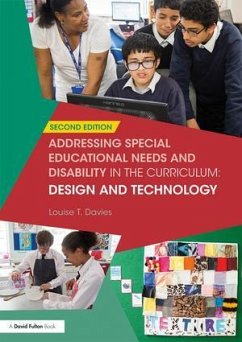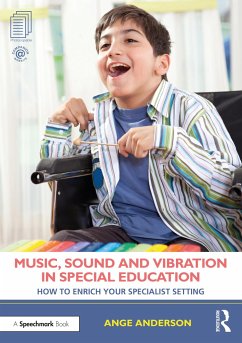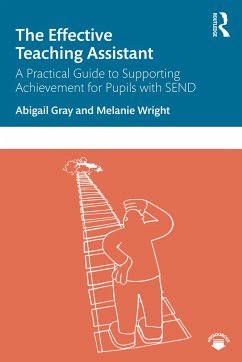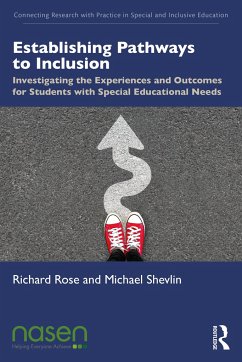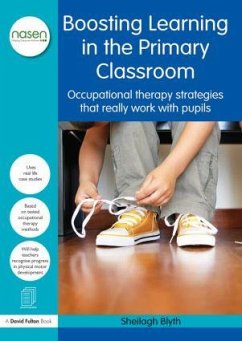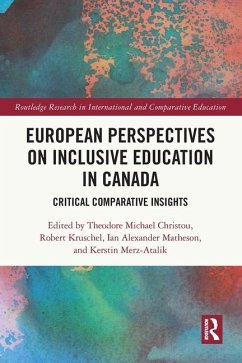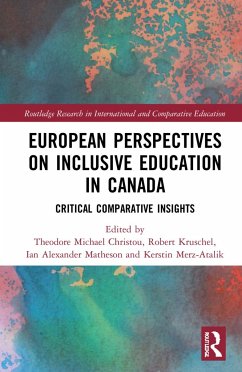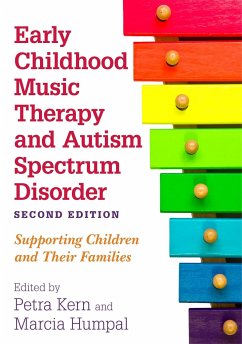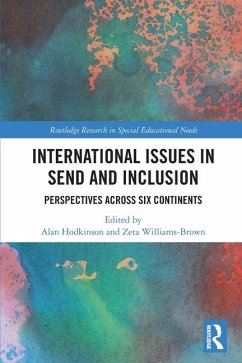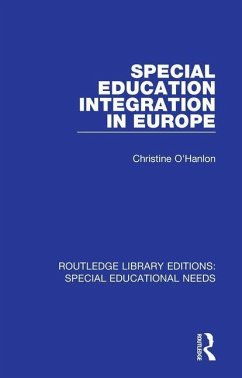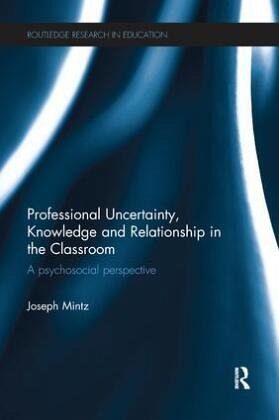
Professional Uncertainty, Knowledge and Relationship in the Classroom
A psychosocial perspective
Versandkostenfrei!
Versandfertig in 6-10 Tagen
54,99 €
inkl. MwSt.
Weitere Ausgaben:

PAYBACK Punkte
27 °P sammeln!
The extent to which teachers should make use of theoretical and expert knowledge as opposed to tacit experiential knowledge, and how these might be combined, is a perennial issue in discussions on pedagogy. This book addresses these debates through a creative development of the concept of productive uncertainty.Using case studies focusing on teachers working with children with autism, a particularly fertile crucible for considering uncertainty, the book explores how the radical 20th century psychoanalyst Wilfred Bion's epistemological approach to uncertainty can be used to re-frame Donald Sch�...
The extent to which teachers should make use of theoretical and expert knowledge as opposed to tacit experiential knowledge, and how these might be combined, is a perennial issue in discussions on pedagogy. This book addresses these debates through a creative development of the concept of productive uncertainty.
Using case studies focusing on teachers working with children with autism, a particularly fertile crucible for considering uncertainty, the book explores how the radical 20th century psychoanalyst Wilfred Bion's epistemological approach to uncertainty can be used to re-frame Donald Schön's concept of reflection in action, offering a new perspective on the practice of teachers and other caring professionals. Several areas of potential uncertainty are identified, including uncertainty relating to areas of practice including diagnosis, the relationship between expert knowledge and practice, the implications of autism for autonomy and agency, and uncertainties in relation to the understanding of and use of new technologies. A strong argument is made, based on both theoretical and empirical grounds, that in juggling between theoretical and tacit knowledge in the classroom there is more to be gained by staying with the struggle with uncertainty than by fleeing from it too early, into the promise of expert solutions. Consideration is also given to the relative importance of specific theoretical training for teachers, both in general and in relation to working with children with special educational needs, in the context of international and UK policy developments in this area.
This book will be of key value to researchers and postgraduates in the fields of education studies, teacher thinking and research, psychoanalytically informed psychosocial studies, as well as to practitioners working in special educational needs/autism education.
Using case studies focusing on teachers working with children with autism, a particularly fertile crucible for considering uncertainty, the book explores how the radical 20th century psychoanalyst Wilfred Bion's epistemological approach to uncertainty can be used to re-frame Donald Schön's concept of reflection in action, offering a new perspective on the practice of teachers and other caring professionals. Several areas of potential uncertainty are identified, including uncertainty relating to areas of practice including diagnosis, the relationship between expert knowledge and practice, the implications of autism for autonomy and agency, and uncertainties in relation to the understanding of and use of new technologies. A strong argument is made, based on both theoretical and empirical grounds, that in juggling between theoretical and tacit knowledge in the classroom there is more to be gained by staying with the struggle with uncertainty than by fleeing from it too early, into the promise of expert solutions. Consideration is also given to the relative importance of specific theoretical training for teachers, both in general and in relation to working with children with special educational needs, in the context of international and UK policy developments in this area.
This book will be of key value to researchers and postgraduates in the fields of education studies, teacher thinking and research, psychoanalytically informed psychosocial studies, as well as to practitioners working in special educational needs/autism education.




